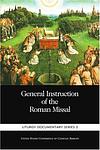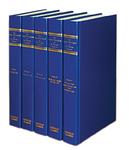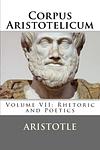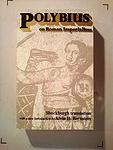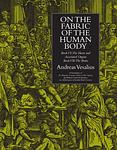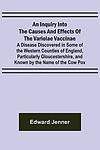Books That Changed the World
This is one of the 284 lists we use to generate our main The Greatest Books list.
-
The Bible by Unknown
The Bible is the central religious text of Christianity, comprising the Old and New Testaments. It features a diverse collection of writings including historical narratives, poetry, prophecies, and teachings. These texts chronicle the relationship between God and humanity, detail the life, death, and resurrection of Jesus Christ, and follow the early Christian church. Considered divinely inspired by believers, it serves as a foundational guide for faith and practice, influencing countless aspects of culture and society worldwide.
-
The Iliad by Homer
This epic poem focuses on the final weeks of the Trojan War, a conflict between the city of Troy and the Greek city-states. The story explores themes of war, honor, wrath, and divine intervention, with a particular focus on the Greek hero Achilles, whose anger and refusal to fight have devastating consequences. The narrative also delves into the lives of the gods, their relationships with humans, and their influence on the course of events.
-
The Odyssey by Homer
This epic poem follows the Greek hero Odysseus on his journey home after the fall of Troy. It takes Odysseus ten years to reach Ithaca after the ten-year Trojan War. Along the way, he encounters many obstacles including mythical creatures, divine beings, and natural disasters. Meanwhile, back in Ithaca, his wife Penelope and son Telemachus fend off suitors vying for Penelope's hand in marriage, believing Odysseus to be dead. The story concludes with Odysseus's return, his slaughter of the suitors, and his reunion with his family.
-
Confessions by Augustine
"Confessions" is an autobiographical work by a renowned theologian, in which he outlines his sinful youth and his conversion to Christianity. It is written in the form of a long, introspective prayer directed to God, exploring the author's spiritual journey and deep philosophical ponderings. The book is renowned for its eloquent and deeply personal exploration of faith, making it a cornerstone of Christian theology and Western literature.
-
Summa Theologica by Thomas Aquinas
This comprehensive text is a seminal work in the field of theology, written by a prominent medieval philosopher and theologian. The book is structured in a question-and-answer format, tackling complex philosophical and theological issues such as the existence of God, the nature of man, the purpose of life, and the intricacies of morality and ethics. It is one of the most influential works in Western thought, particularly in Christian theology and philosophy, and continues to be a vital reference in these fields.
-
The Prince by Niccolo Machiavelli
This classic work of political philosophy provides a pragmatic guide on political leadership and power, arguing that leaders must do whatever necessary to maintain authority and protect their states, even if it means compromising morality and ethics. The book explores various types of principalities, military affairs, the conduct of great leaders, and the virtues a prince should possess. It is known for its controversial thesis, which suggests that the ends justify the means in politics.
-
Principia Mathematica by Isaac Newton
This seminal work is a comprehensive exploration of classical physics, laying the groundwork for much of modern science. The author presents his three laws of motion and law of universal gravitation, effectively bridging the gap between the abstract world of mathematics and real-world phenomena. The book also delves into the principles of calculus, a mathematical discipline the author significantly developed. This work has had a profound influence on the scientific understanding of the physical universe.
-
Common Sense by Thomas Paine
This influential pamphlet, published in 1776, played a crucial role in persuading the colonists of the Thirteen Colonies to declare independence from Britain. It argues for the democratic system of government, criticizes monarchy and hereditary succession, and advocates for the inherent rights and freedoms of individuals. The text uses plain language to make complex political ideas accessible to the average citizen, promoting the idea that the colonies have a right to be an independent nation.
-
The Wealth of Nations by Adam Smith
This influential economic book presents a groundbreaking theory that argues for free market economies. The author posits that individuals acting in their own self-interest within a system of natural liberty will result in societal benefit, a concept often referred to as the "invisible hand" theory. The book also critiques mercantilism and explores concepts such as the division of labor, productivity, and free markets. It is widely considered one of the foundational texts in the field of economics.
-
A Vindication of the Rights of Woman by Mary Wollstonecraft
This influential work from the late 18th century argues passionately for the education and societal recognition of women. The author asserts that women are not naturally inferior to men, but appear to be only because they lack education. She suggests that both men and women should be treated as rational beings and imagines a social order founded on reason. The book is considered one of the earliest works of feminist philosophy.
-
An Essay on the Principle of Population by Thomas Robert Malthus
This influential work explores the theory that population growth will always tend to outrun the food supply and that betterment of humankind is impossible without strict limits on reproduction. The author argues that poverty, disease, and starvation are all necessary to keep societies from moving beyond their means of subsistence. The book's grim outlook and controversial theories have sparked significant debate and criticism since its publication.
-
Civil Disobedience by Henry David Thoreau
The book is a seminal work on the philosophy of non-violent resistance, advocating for individual freedom and the refusal to obey unjust laws. The author argues that individuals have a duty to prioritize their conscience over the dictates of laws and that governments are inherently prone to corruption and should not command absolute allegiance from their citizens. The book has greatly influenced many nonviolent resistance movements around the world, including those led by Gandhi and Martin Luther King Jr.
-
Uncle Tom's Cabin by Harriet Beecher Stowe
This renowned novel provides a harsh critique of American slavery through the story of Uncle Tom, a long-suffering black slave. The narrative follows Tom as he is sold and transported to the harsh South, encountering a variety of characters, both kind and cruel. The novel powerfully explores themes of faith, the immorality of slavery, and the concept of humanity, ultimately contributing to the abolitionist cause and leaving a significant impact on the American perception of slavery.
-
On the Origin of Species by Charles Darwin
This groundbreaking work presents the theory of evolution, asserting that species evolve over generations through a process of natural selection. The book provides a comprehensive explanation of how the diversity of life on Earth developed over millions of years from a common ancestry. It includes detailed observations and arguments to support the idea that species evolve by adapting to their environments, challenging the prevailing belief of the time that species were unchanging parts of a designed hierarchy.
-
Das Kapital by Karl Marx
This influential work is a comprehensive critique of political economy, exploring the complex nature of capitalism, its production processes, and its societal impact. The book delves into the intricacies of commodities, labor theory of value, surplus value, and exploitation, arguing that capitalism is inherently unstable and prone to periodic crises. It also posits that the capitalist system ultimately leads to the concentration of wealth in fewer hands, causing social inequality and paving the way for its own demise. The book is widely regarded as a foundational text in the development of socialist and communist ideologies.
-
The Interpretation of Dreams by Sigmund Freud
This groundbreaking work explores the theory that dreams are a reflection of the unconscious mind and a means of understanding our deepest desires, anxieties, and fantasies. The book delves into the symbolism of dreams and their connection to repressed thoughts and experiences, proposing that they are a form of wish fulfillment. The author also introduces the concept of "dream work," which transforms these unconscious thoughts into the content of dreams, and discusses various methods of dream interpretation.
-
Silent Spring by Rachel Carson
This influential environmental science book presents a detailed and passionate argument against the overuse of pesticides in the mid-20th century. The author meticulously describes the harmful effects of these chemicals on the environment, particularly on birds, hence the metaphor of a 'silent spring' without bird song. The book played a significant role in advancing the global environmental movement and led to a nationwide ban on DDT and other pesticides in the United States.
-
Seven Against Thebes by Aeschylus
"Seven Against Thebes" is a classic Greek tragedy that revolves around the conflict between the two sons of Oedipus, Eteocles and Polynices, who are fighting for the throne of Thebes. The brothers ultimately kill each other in battle, fulfilling their father's curse that they would divide their inheritance by the sword. The play ends with the women of Thebes mourning the death of the brothers and the city in ruins. The tale is a powerful exploration of family loyalty, power struggles and the consequences of destiny and fate.
-
Oresteia by Aeschylus
"Oresteia" is a trilogy of Greek tragedies that tells the story of the House of Atreus. It begins with King Agamemnon's return from the Trojan War and his subsequent murder by his wife, Clytemnestra, and her lover, Aegisthus. The second play focuses on the revenge of their son, Orestes, who kills his mother and her lover to avenge his father's death. The final play deals with the trial of Orestes by the gods for the crime of matricide, resulting in his acquittal and the end of the curse on the House of Atreus. The trilogy explores themes of justice, vengeance, and the intervention of the gods in human affairs.
-
The Persians by Aeschylus
"The Persians" is an ancient Greek tragedy that tells the story of the Persian King Xerxes and his failed invasion of Greece. The narrative focuses on the aftermath of the Battle of Salamis, depicting the mourning of Xerxes' mother and the ghost of his father Darius, who prophesied the fall of the Persian Empire. It serves as a critique of the arrogance and hubris of Xerxes and a celebration of Greek victory, while also exploring themes of war, loss, and the consequences of ambition.
-
The Suppliants by Aeschylus
"The Suppliants" is a classic Greek drama that revolves around a group of fifty women who flee from Egypt to avoid marrying their cousins, seeking asylum in the city of Argos. The King of Argos is torn between offering them protection or facing the wrath of the Egyptians. The play explores themes of democracy, law, and the struggle between the sexes. The drama ends on a cliffhanger, with the Egyptian suitors arriving to reclaim the women and threatening war.
-
Prometheus Bound by Aeschylus
"Prometheus Bound" is a tragedy set in ancient Greece that tells the story of the Titan Prometheus, who defies the gods by giving humans the gift of fire, a symbol of knowledge and civilization. As punishment, Zeus chains Prometheus to a rock in the Caucasus Mountains where he is tormented by a vulture that eats his liver every day, only for it to grow back overnight. Despite his suffering, Prometheus refuses to submit to Zeus' will, embodying the human spirit's unyielding resistance against oppression.
-
Oedipus at Colonus by Sophocles
"Oedipus at Colonus" is a tragic play that follows the final days of Oedipus, the former king of Thebes. Oedipus, now blind and exiled, arrives at the town of Colonus where he is initially rejected due to the curse that follows him. However, after revealing a prophecy that his burial place will bring prosperity to the city that hosts it, he is allowed to stay. The play explores themes of fate, guilt, and redemption, ending with Oedipus's peaceful death and ascension to a semi-divine status.
-
Philoctetes by Sophocles
"Philoctetes" is a Greek tragedy that tells the story of a skilled archer abandoned on a deserted island by the Greeks during the Trojan War, due to a foul-smelling wound on his foot. Years later, the Greeks discover a prophecy that they will need Philoctetes and his magical bow to win the war. They send Odysseus and Neoptolemus to retrieve him, leading to a moral dilemma as they must decide whether to deceive the bitter and mistrustful Philoctetes or to persuade him to willingly join their cause. The play explores themes of suffering, deceit, and the struggle between personal integrity and duty.
-
Oedipus the King by Sophocles
"Oedipus the King" is a tragic play that revolves around the life of Oedipus, the king of Thebes, who is prophesied to kill his father and marry his mother. Despite his attempts to avoid this fate, Oedipus unknowingly fulfills the prophecy. When he discovers the truth about his actions, he blinds himself in despair. The play explores themes of fate, free will, and the quest for truth, highlighting the tragic consequences of human hubris and ignorance.
-
Ajax by Sophocles
"Ajax" is a classic Greek tragedy that revolves around the character of Ajax, a heroic warrior in the Trojan War who falls into a state of madness and despair when he is passed over for the honor of inheriting the armor of the fallen hero, Achilles. In his fury, Ajax slaughters a flock of sheep, believing them to be his comrades. When he regains his sanity and realizes what he has done, he is filled with shame and ultimately takes his own life. The play explores themes of honor, pride, and the tragic consequences of unchecked rage.
-
Women of Trachis by Sophocles
This ancient Greek tragedy follows the story of a woman who mistakenly kills her husband, a legendary hero, with a poisoned shirt. She had been given the shirt by a dying centaur who told her it would ensure her husband's loyalty. However, the centaur had actually been fatally wounded by the hero, and the shirt was soaked in the centaur's poisonous blood. The woman kills herself upon realizing her tragic mistake.
-
Electra by Sophocles
"Electra" is a classic Greek tragedy that revolves around the character of Electra and her thirst for revenge. After her father, the king, is murdered by her mother and her mother's lover, Electra and her brother, Orestes, plot to avenge their father's death. The story is a complex exploration of justice, vengeance, and familial duty, depicting Electra's struggle between her desire for revenge and the moral implications of matricide.
-
Antigone by Sophocles
This ancient Greek tragedy follows the story of Antigone, a young woman who defies the king's edict in order to bury her brother according to their religious customs. The king, her uncle, sentences her to death for her disobedience, leading to a series of tragic events including his own son's suicide. The play explores themes of loyalty, honor, obedience, and the conflict between the laws of the state and the laws of the gods.
-
The Bacchae by Euripides
"The Bacchae" is a classic Greek tragedy where the god Dionysus, disguised as a mortal, returns to his birthplace in Greece to punish the impious King Pentheus who denies Dionysus's divine nature and refuses to worship him. The narrative explores themes of revenge, mortality, and the relationship between man and god. Dionysus uses his power to drive the women of the city into a crazed frenzy, leading to a tragic end for King Pentheus and his mother Agave.
-
Medea by Euripides
"Medea" is a Greek tragedy that tells the story of Medea, a former princess of the "barbarian" kingdom of Colchis, and her husband Jason, who leave her to marry Glauce, the daughter of Creon, king of Corinth. In a fit of rage, Medea decides to take revenge on Jason by killing their children, Jason's new wife, and her father, King Creon. The play explores themes of revenge, women's rights, and the dangers of absolute power.
-
Trojan Women by Euripides
"Trojan Women" is a tragic play set in the aftermath of the Trojan War, focusing on the fate of the women of Troy. The story follows the mother of Hector, Hecuba, and her daughter-in-law, Andromache, as they grapple with the loss of their city and loved ones. They, along with other women, are destined to become slaves to the victorious Greeks. The narrative explores themes of war, suffering, and the resilience of women in the face of adversity.
-
Hippolytus by Euripides
"Hippolytus" is a tragic play that revolves around the themes of lust, revenge, and the wrath of the gods. The story follows the character Hippolytus, a dedicated follower of the goddess Artemis, who spurns the advances of his stepmother Phaedra. In a fit of jealousy, Phaedra falsely accuses Hippolytus of rape, leading his father Theseus to curse him. The resulting divine punishment and misunderstandings lead to the tragic deaths of both Hippolytus and Phaedra, revealing the devastating consequences of deceit and the unforgiving nature of the gods.
-
Lysistrata by Aristophanes
"Lysistrata" is a comedic play set in ancient Greece, where the women of Athens, led by the eponymous character, decide to withhold sexual privileges from their husbands and lovers in order to force them to negotiate a peaceful end to the Peloponnesian War. Along with the women of Sparta, they seize the Acropolis and the treasury, and through their non-violent resistance, they manage to bring about a reconciliation between the warring states. The play is a humorous exploration of gender roles and the power of passive resistance.
-
The Clouds by Aristophanes
"The Clouds" is a satirical play that critiques the intellectual and moral corruption of Athenian society by focusing on a father-son relationship. The father, in an effort to evade debt, sends his son to a school of sophistry to learn the art of manipulating language and logic to win arguments. The story explores themes of education, morality, and the conflict between traditional and modern values. The play is well-known for its critical portrayal of Socrates as a sophist and its comedic elements.
-
The Birds by Aristophanes
This ancient Greek comedy play revolves around two men who are fed up with the problems of human society and decide to create a utopian city in the clouds with the help of birds. Their city, 'Cloudcuckooland', becomes popular and attracts gods and humans alike, leading to a series of humorous and satirical events. The play is a satire on political and social life in Athens, poking fun at its democracy, bureaucracy, and warfare.
-
The Histories of Herodotus by Herodotus
"The Histories of Herodotus" is an ancient text that provides a comprehensive account of the Greco-Persian Wars. It is often considered the first work of history in Western literature. The author, often referred to as the 'Father of History', provides a narrative that not only discusses the conflicts between the Greeks and Persians, but also delves into the customs, geography, and history of each civilization. This detailed and pioneering work has greatly contributed to our understanding of the ancient world.
-
The History of the Peloponnesian War by Thucydides
This book is a historical account of the Peloponnesian War between the city-states of Athens and Sparta in ancient Greece. The author, an Athenian general, provides a detailed narrative of the war, its causes, and its consequences, offering valuable insights into the political and social dynamics of the time. The work is considered a pioneering piece in the field of history due to its rigorous methodology and critical analysis of events.
-
Parallel Lives by Plutarch
"Parallel Lives" is a collection of biographies of famous Greek and Roman figures, written in pairs to draw comparisons between their lives. The work explores the influence of character on the lives and destinies of these historical figures. The biographies are not only a record of the lives of these individuals, but also provide insight into the times in which they lived, offering a unique perspective on the history and culture of the ancient world.
-
De Rerum Natura by Lucretius
"De Rerum Natura" is a long didactic poem written in the first century BC, which explores Epicurean philosophy and the nature of the universe. The text delves into topics such as the nature of the gods, the atomic structure of the universe, human sensation and thought, and the fear of death. The author argues that understanding the physical world can free humans from superstition and fear, leading to peace of mind and true happiness.
-
The Complete Works of Plato by Plato
This comprehensive collection compiles the philosophical works of an influential Classical Greek philosopher. The book includes his dialogues, letters, and philosophical musings, exploring topics such as justice, beauty, truth, mathematics, politics, love, and virtue. The philosopher's ideas, including the theory of forms, the allegory of the cave, and the philosopher king, have had a profound impact on Western thought and continue to be studied and debated in modern philosophical and academic circles.
-
Corpus Aristotelicum by Aristotle
The "Corpus Aristotelicum" is a collection of texts by an ancient Greek philosopher, providing an extensive exploration of numerous fields of knowledge, such as metaphysics, ethics, logic, politics, biology, and poetry. These works have been instrumental in shaping Western philosophy and have had a profound influence on a wide range of subjects, including science, theology, and politics. The collection is known for its systematic and logical approach, and for its groundbreaking ideas that continue to stimulate intellectual discourse.
-
The Dyskolos by Menander
The Dyskolos is a comedic play set in ancient Greece, revolving around a grumpy old man who hates everyone and everything. His attitude changes when a young man, smitten by the old man's daughter, saves him from a well. The old man, grateful for his life, allows the young man to marry his daughter, bringing about a happy ending. The play explores themes of love, gratitude, and the transformation of character.
-
Anabasis by Xenophon
"Anabasis" is a historical narrative detailing the journey of 10,000 Greek mercenaries who are hired by Cyrus the Younger to help him seize the Persian throne from his brother, Artaxerxes II. After Cyrus's death in battle, the Greeks are stranded deep in enemy territory with no supplies or means of escape. The narrative follows their perilous journey home through hostile lands, under the leadership of one of their own, a young soldier who emerges as a capable and inspiring leader.
-
The Histories by Polybius
"The Histories" is a comprehensive account of the rise of the Roman Empire, focusing on the period from 264-146 BC. The author, a Greek statesman, provides a detailed analysis of the political, military, and social structures of Rome, attributing its success to a balanced constitution and superior military organization. The work also includes first-hand accounts of several significant events, such as the Third Punic War and the Numantine War.
-
Catiline's War, The Jugurthine War, Histories by Sallust
This book is a combination of three works by a Roman historian and politician, focusing on the political and military events of the late Roman Republic. It first covers the conspiracy led by Catiline in 63 BC, then shifts to the war against Jugurtha in North Africa, and finally provides a fragmentary history of Rome from 78-67 BC. The author uses these events to critique the moral decay of Rome, highlighting the corruption, greed, and ambition that he believed led to the fall of the Republic.
-
Titi Livi Ab urbe condita libri by Livy
This historical work offers a comprehensive narrative of the history of Rome, from its mythical origins to the reign of the Roman Emperor Augustus. The author chronicles the major political, military, and social events of the Roman Republic, including the founding of the city, the establishment of the Republic, the Punic Wars, and the rise of Julius Caesar. The book is a significant source of information about the early history of Rome and is often considered one of the most important works of Roman history.
-
Annals by Cornelius Tacitus
"Annals" is a historical work that provides a comprehensive account of the Roman Empire from the reign of Tiberius in 14 AD to the death of Nero in 68 AD. The author, a senator and historian of the Roman Empire, explores the inner workings of Roman politics, military campaigns, and social culture during this period. The book offers an in-depth look at the political machinations, power struggles, and the moral decay of the Roman elite, providing a critical perspective on the Roman emperors and their rule.
-
Histories by Cornelius Tacitus
"Histories" is a comprehensive account of the Roman Empire from 69-96 AD, a period marked by significant political turmoil. It provides an in-depth look at the reigns of four emperors: Galba, Otho, Vitellius, and Vespasian, along with the social and political upheavals of the time. The narrative also covers the Jewish rebellion and the burning of the Jerusalem Temple, offering a rich historical context of the period. Despite some gaps in the record, it remains a crucial primary source for understanding this era of Roman history.
-
Hippocratic Corpus by Hippocrates
The "Hippocratic Corpus" is a collection of around 70 early medical works from ancient Greece, written in Ionic Greek. The texts are of varying content and length, covering a wide range of medical topics, including clinical descriptions of disease, surgical procedures, medical ethics, and philosophical reflections. Although traditionally attributed to Hippocrates, modern scholars believe that many of the works were not written by him and instead represent the work of several different authors over several decades. Despite this, the collection remains an invaluable resource for understanding the beginnings of Western medicine.
-
Theophrastus: His Psychological, Doxographical, and Scientific Writings by William Wall Fortenbaugh, Dimitri Gutas
This book is an extensive study of Theophrastus, a Greek philosopher and pupil of Aristotle, focusing on his psychological, doxographical, and scientific writings. The authors delve into his theories, ideas, and contributions to various fields, including biology, physics, metaphysics, and ethics. They also examine his influence on later philosophers and his role in the development of Greek philosophy. The book provides a comprehensive understanding of Theophrastus's works, making it a valuable resource for students and scholars of ancient philosophy.
-
The Works of Archimedes by Archimedes
This book is a compilation of the surviving works of one of the greatest mathematicians and inventors of all time. It includes his theories and discoveries in fields such as geometry, calculus, physics, and engineering. Readers will find his famous treatises on the lever, the sphere and the cylinder, floating bodies, and the measurement of a circle, among others. The book also contains his explanations of the principles of mechanics, the concept of equilibrium, and the center of gravity of plane figures.
-
Natural History by Pliny (the Elder)
"Natural History" is an extensive work of literature that provides a comprehensive look at the knowledge of the natural world during the Roman era. The book is divided into 37 volumes, each focusing on different aspects such as geography, anthropology, zoology, botany, and mineralogy. The author's curiosity and fascination with the world are evident in his detailed observations and descriptions. The book also includes discussions on art, sculpture, and various other topics, providing a rich and detailed snapshot of the Roman understanding of the world.
-
The City of God by Augustine
The book is a philosophical and theological masterpiece, written as a defense of Christianity after the sack of Rome in 410 AD. The author contrasts the earthly city, characterized by pride and love of self to the point of contempt for God, with the heavenly city, characterized by love of God to the point of contempt for self. He argues that though the earthly city may seem dominant in the present age, the heavenly city will ultimately triumph. The book is a profound exploration of history, philosophy, religion, and the human condition.
-
On the Revolutions of the Heavenly Spheres by Nicolaus Copernicus
This book presents the revolutionary astronomical model that places the sun, rather than the earth, at the center of the universe. The author challenges the geocentric model of the cosmos, which had been widely accepted since the time of Aristotle, and instead proposes a heliocentric system, where the planets orbit the sun. This revolutionary idea transformed the way we understand our place in the universe, paving the way for modern astronomy and science.
-
On the Fabric of the Human Body by Andreas Vesalius
"On the Fabric of the Human Body" is a seminal work in the field of anatomy, providing detailed descriptions and illustrations of the human body's structure and functions. The book, written in the 16th century, revolutionized the understanding of human anatomy, challenging the prevailing ideas of the time, which were primarily based on the dissection of animals. Its author, a physician and anatomist, emphasized the importance of direct observation and dissection of human bodies in medical education and research.
-
An Anatomical Exercise on the Motion of the Heart and Blood in Living Beings by William Harvey
This influential medical text is a detailed study on the circulatory system, specifically focusing on the movement of blood and the function of the heart in living organisms. The author challenges the long-standing medical theories of his time, arguing against the belief that blood was created in the liver and then consumed by the body. Instead, he proposes that the heart acts as a pump, circulating blood throughout the body in a closed system. This revolutionary idea laid the foundation for modern understanding of the circulatory system and cardiovascular health.
-
An inquiry into the causes and effects of the variolae vaccinae by Edward Jenner
This scientific treatise is a pioneering work in the field of immunology, presenting the concept and methodology of vaccination against smallpox. The author explores the correlation between cowpox and smallpox, proposing that cowpox can be used as a preventive measure against smallpox. The book provides empirical evidence supporting this theory, marking a significant breakthrough in medical science and ultimately leading to the global eradication of smallpox.
-
The Influence of Sea Power Upon History, 1660-1783 by Alfred Thayer Mahan
This book is a comprehensive examination of the importance of naval warfare in the period between 1660 and 1783. The author argues that sea power was a crucial factor in determining the outcomes of historical events during this period, including the rise and fall of empires and the outcomes of wars. The book provides detailed analyses of major naval battles, strategies, and technologies, as well as the economic and political factors that influenced the development of naval power. It is considered a seminal work in the field of naval history and strategy.
Book, 59 Books
Scholar Robert B. Downs selects the "great works that revolutionized our ideas about the universe - and ourselves".
Added over 9 years ago.
This list has a weight of 46%. To learn more about what this means please visit the Rankings page.
Here is a list of what is decreasing the importance of this list:
- Voters: 1 person voted
- List: criteria is not just "best/favorite"
If you think this is incorrect please e-mail us at [email protected].
